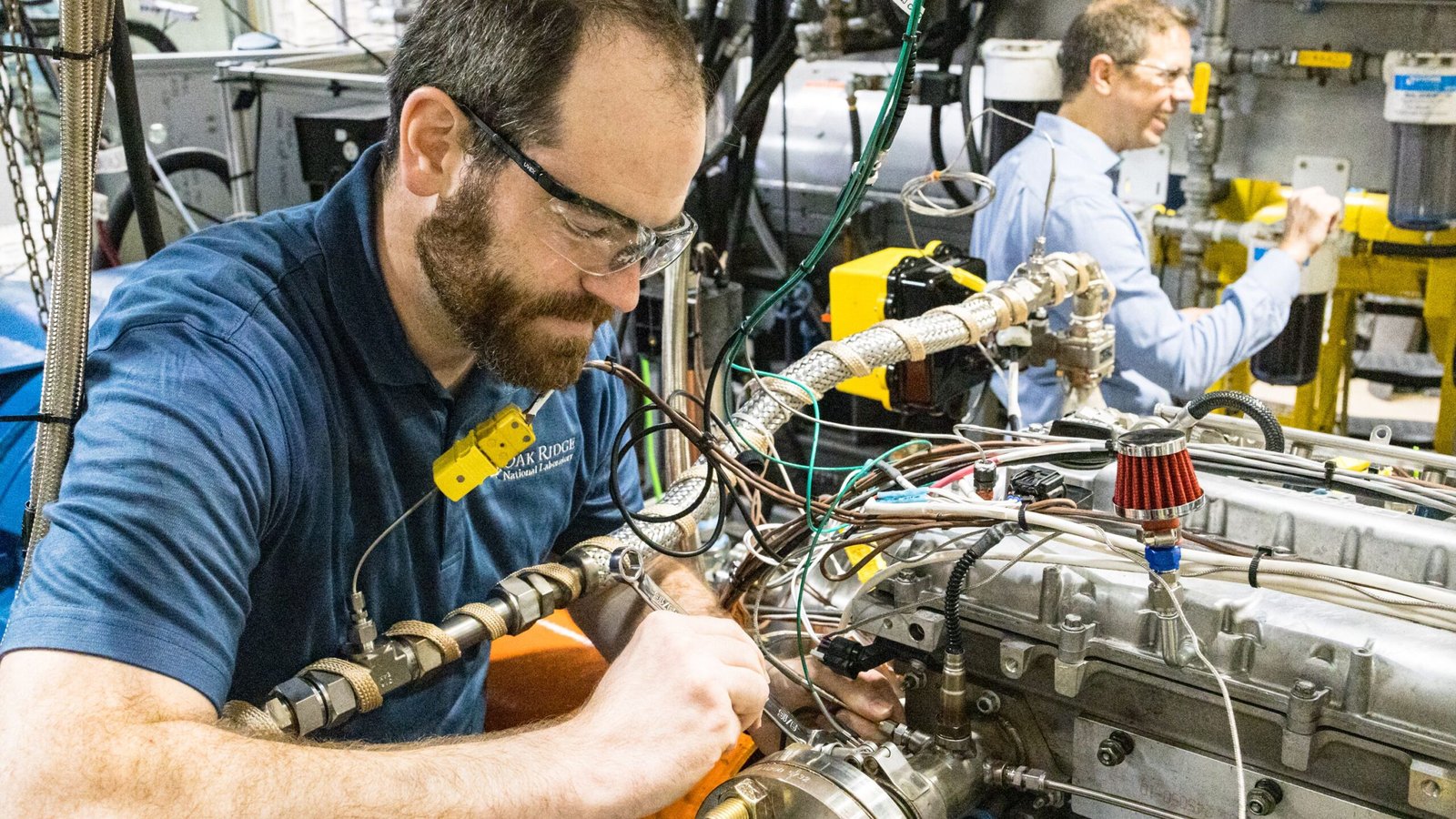Oak Ridge National Laboratory (ORNL), the Department of Energy’s largest multidisciplinary laboratory, and Fairbanks Morse Defense (FMD) have entered into a Memorandum of Understanding (MOU) to collaborate on the development and integration of alternative fuel technologies aimed at reducing the marine engine’s reliance on fossil fuels. FMD will incorporate the research and development conducted at ORNL into its engine design technology.
“Oak Ridge is a leader in decarbonization research, clean energy technology development, and defense manufacturing”
Marine engines heavily rely on diesel fuel, which constitutes a significant annual expense for the Department of Defense (DOD). However, global decarbonization efforts are expected to limit the availability of diesel fuel and drive-up costs. In anticipation of this shift, the DOD is exploring options to transition its marine engine technology to low-lifecycle carbon fuels (LLCF) such as methanol, ammonia, hydrogen, and biodiesel.
“Oak Ridge is a leader in decarbonization research, clean energy technology development, and defense manufacturing,” said Moe Khaleel, Associate Laboratory Director for National Security Sciences.
“Collaborating with a trusted national security partner like Fairbanks Morse Defense will enable us to translate our scientific expertise into deployable technologies for the Department of Defense.”
Under the terms of the MOU, ORNL will leverage its research and development expertise, while FMD will contribute its power and propulsion design and manufacturing proficiency to promote the use of LLCFs in marine engines. FMD will define the performance and durability requirements and design testing components, while ORNL will provide research support in combustion strategies for LLCFs, high-temperature materials, additive manufacturing, elastomer compatibility, and corrosion.
“As climate change impacts our global waterways, these changing and unpredictable impacts directly affect our ability to protect the freedom of the seas,” said George Whittier, FMD CEO. “We’re fully committed to supporting the Department of Defense’s 2030 decarbonization goals with fuel and engine technologies that will create a more sustainable future for the Navy, and we look forward to working with ORNL to explore these possibilities.”
Additional partnership intentions from the MOU include the following:
• Collaborating on program development to identify and secure external research and development opportunities.
• Establishing a single-cylinder research engine laboratory dedicated to exploring breakthroughs in areas such as safe fuel handling, LLCF combustion strategy, and experimental engine hardware configurations.
• Supporting alternative fuel combustion development strategy through modeling studies that employ advanced analytics such as computational fluid dynamics simulations using high-performance computing resources.

